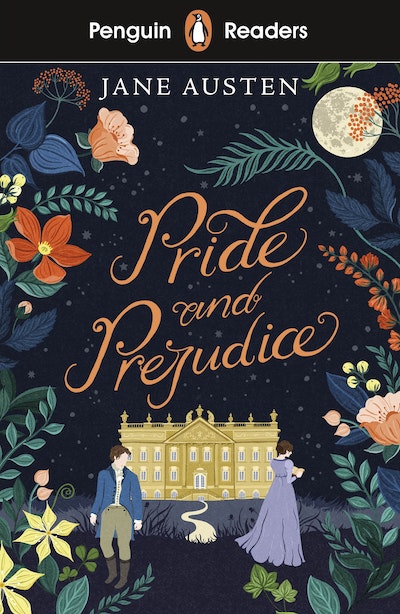My first meeting with Pride and Prejudice was probably not the most auspicious one. The book may have hundreds of die hard fans and an adaptation every ten years but it seemed stuffy and a little full of itself. True, grabbing it because it was the only book that fit in my pocket, reading it on a bus and taking it into a drum-n-bass nightclub, where I was frisked for it - may not be the idea time and place.
Now, prepared to give it more than a first impression, I find a sparkling, sarcastic novel with a far subtler romance than I was expecting. My problem the first time was that the book takes a little bit of time to establish exactly whose story is being told. Even by the time it establishes it’s principal hate-turned-love couple, it remains something of an ensemble, offering a number of potential brides and four inevitable husbands.
The Bennetts are a family leaving to the limit of their means, largely through a certain laxness on the part of the Bennett parents. These consist of Mr Bennett, a man I originally liked for his easy-going nature and sarcastic sense of humour but eventually begin to dislike for those same reasons. Mrs Bennett was instantly a little grating, a shrieking, nosy, embarrassing woman who also displays some sneaky, game-playing tendencies throughout the novel. Indeed, a novel of the courtship between Mr and Mrs Bennet would be an interesting one, if not necessarily a romance, or if a romance, maybe not one with the happiest of endings. The eldest daughters are Jane, who is niceness personified, and Elizabeth who is smart and with a wit that is sharper and closer to her father than anyone else’s. The three younger daughters are Mary, who is bookish but not smart, Kitty and Lydia. Kitty and Lydia are both young, foolish teens who like flirting with local army officers. Austen walks a fine line with the characters of the family particularly, we’re supposed to like them and be invested in their romances and their futures but at the same time, one the running jokes in the book is how embarrassing families can be.
Our choice of men consists of: Mr Bingley, fairly rich but a little non-committal; Mr Darcy, extremely rich but arrogant and vain; Mr Wickham, seemingly nice but possibly untrustworthy and Mr Collins, who’s a pretentious fool. The fact is, that I wasn’t hugely enamoured with any of the male selection. Bingley seemed the best, he’d be a nice and easy going person to spend time with but he is so very easily led. It seems he can’t make decisions for himself and even when he has strong feelings is happy to acquiesce to his friend’s feelings on the matter. He’s still better than Wickham though, who you couldn’t trust as long as you could throw him, nor would you want to spend much time with Collins.
As for Mr Darcy, the much praised and beloved Mr Darcy, I seemed to miss the part when he moved from stiff, arrogant and rude to a perfect husband. From the little Jane Austen I’ve read, I far preferred Mr Tilney, he was a tad socially awkward but he had a sense of humour, I am sure Darcy has none. He’s not even fascinatingly tortured, he’s just a rather rigid, uncharismatic, dull man. That Elizabeth starts to like him after she sees his house is no terrible reflection on her but I think the idea is that her conversation with the housekeeper is what tips her towards re-evaluating her feelings to Darcy and not the size of his.. estate.
I liked these people and I liked the style - I can see the smile in Jane Austen now, but I have to admit to not being particularly invested in who went with who. Perhaps it was the limited selection of hunky men, perhaps it was the fact this story is so ingrained in the collective conscious that I already knew the final pairings but I found Pride and Prejudice a book I could see the quality of, enjoy but not get particularly invested in.



No comments:
Post a Comment